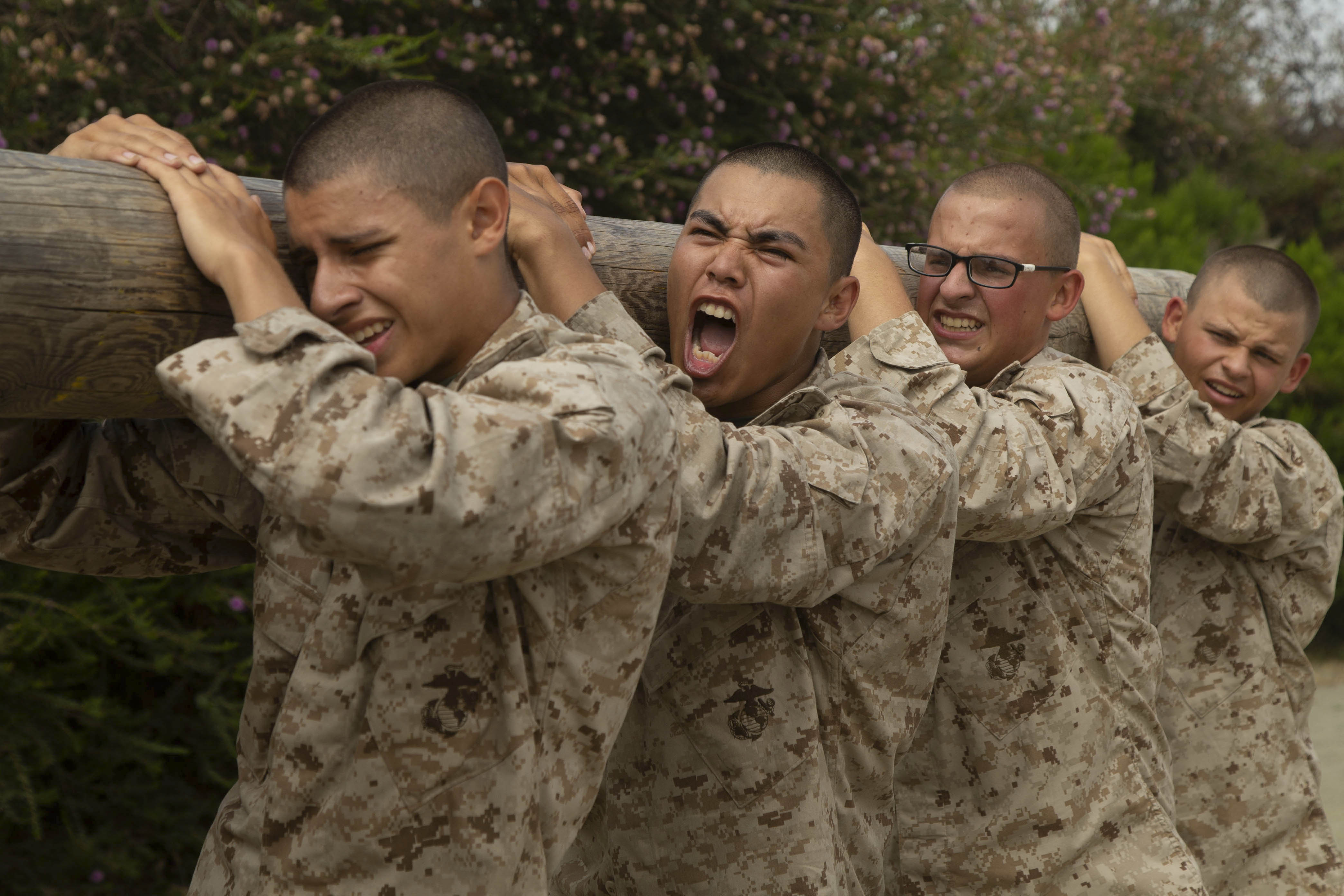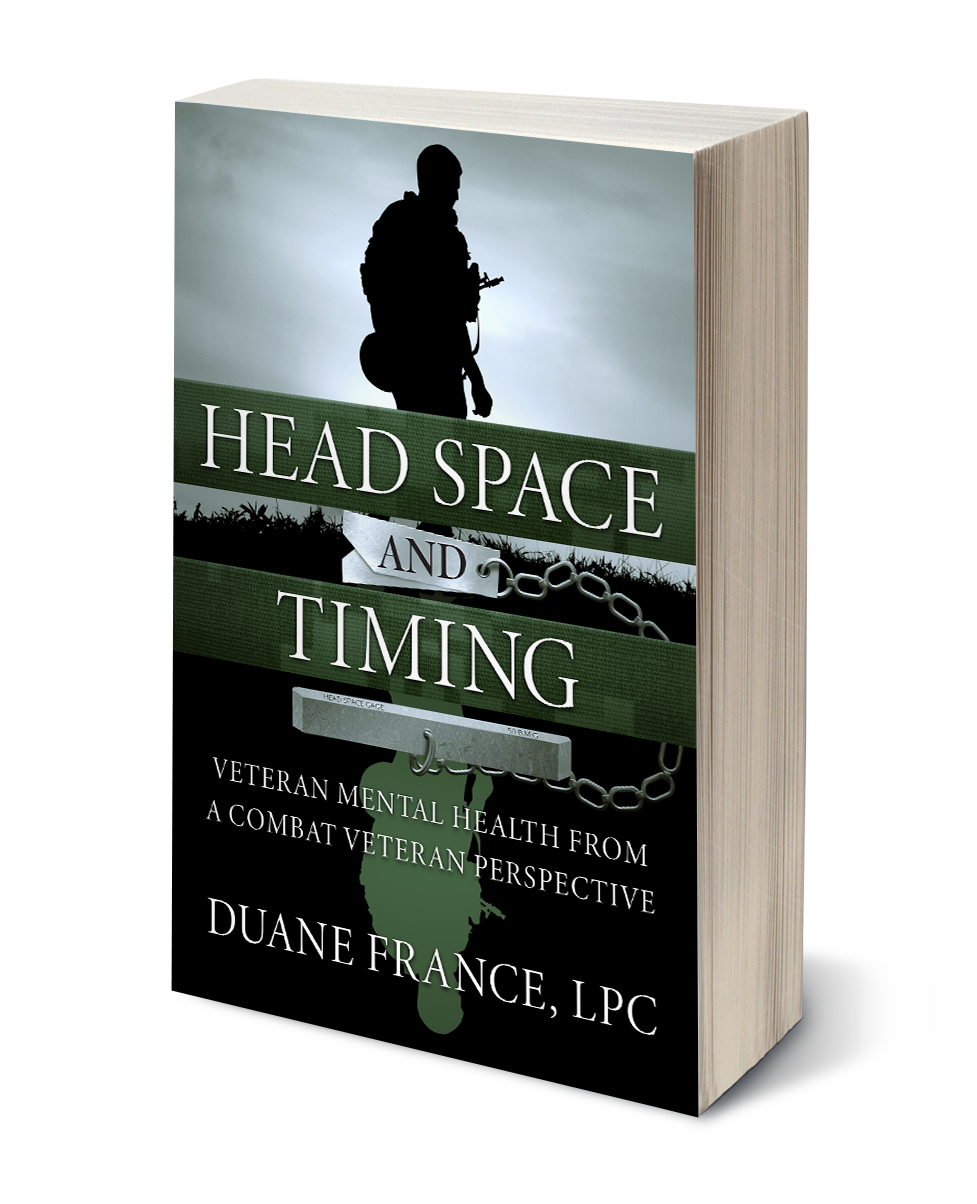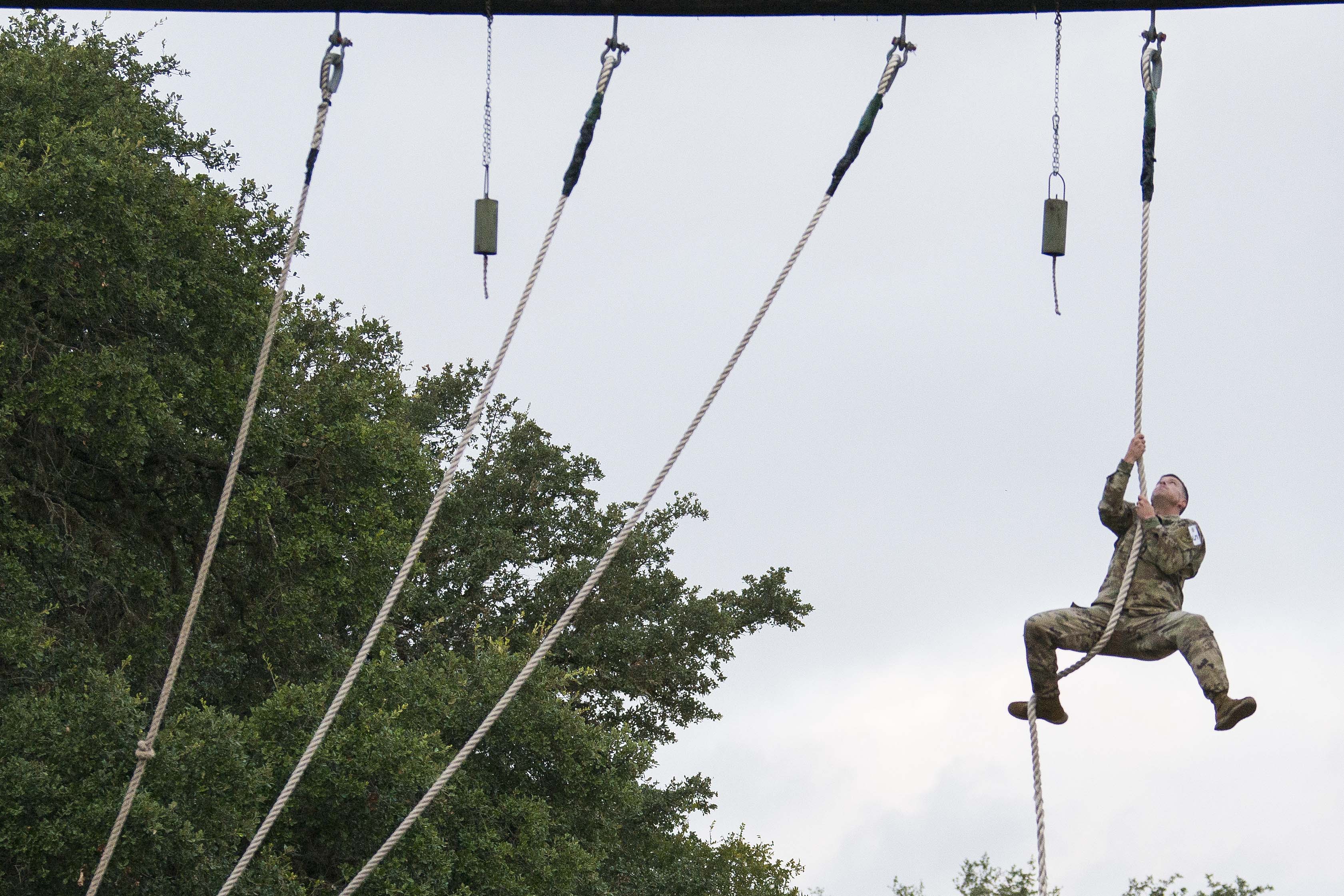
Recruits with Golf Company, 2nd Recruit Training Battalion, perform squats with a log at Marine Corps Recruit Depot San Diego. Photo By: Marine Corps Pfc. Cristian Torres
If you’re a veteran, think of one of the hardest things you ever endured while in the military. For many, it’s probably traumatic and comes with some painful memories, but think about that time where you were just on the edge of keeping it together. Handling your business. That moment where you and your buddies looked back and said, “how the heck did we make that happen?”
That couldn’t have happened the day you set foot in the military. You had to build yourself up to the capacity to get through that, and the military helped. All of those drill sergeants, squad leaders, platoon commanders, Chiefs and Gunnys…they helped develop you to the point where you could take a shot in the chops like that and keep on going. And they wouldn’t have been able to do that day one, either.
Military service developed us to endure adversity and overcome hardship. The benefits of that development and training didn’t stop when we left the military; we didn’t drop the traits we developed in the military in the corner the same way we did with our uniform the last time we took it off. We can, and should, continue to apply those traits to our post-military lives.
Endurance
If there’s one thing that the military taught me, it was endurance. I wasn’t ever the strongest, or the fastest, but I sure did hold on for a long time. I used to tell my troops, “you may run faster than me, but you’re not going to run longer than me, and eventually I’ll catch up to you.” We didn’t know the limits that we could push ourselves to the day we raised our right hand; it was only through testing and repetition that we found how far we could run, how deep we could dive, how high we could climb. And when we were on what we thought was the edge of exhaustion, there were others there to push us, to drive us beyond that edge into a new space, where we could accomplish more.
Sure, age and effort take it’s toll; I no longer run as far or as fast (or at all, really). The endurance that we developed in the military can manifest itself in other ways in our post-military life, though. Hard work, whatever that work is; technical work, labor, intellectual pursuits…it’s not about driving for more, but the endurance that we developed in the military can benefit us and the pursuits that we choose to follow after we leave the service.
Devotion
We often talk about the bond between service members, and it can be hard to describe to those who never served. We don’t often describe them as “friends,” but more as family. The unit’s Commander is it’s father (regardless of gender) and the senior Noncommissioned Officer is it’s mother (again, regardless of gender…although, the term “mother” applied to me from my time as a First Sergeant was likely followed by a less appropriate word). Our fellow platoon members were brothers and sisters, and a bond formed between them that is strong, even through the passing of years and across distances. And you didn’t even have to like them as a person; you often didn’t. Heaven forbid, however, if someone came after a fellow platoon or squad mate, even if you couldn’t stand them…you would be at their side in a flash.
That loyalty is something that employers look for in post-military life. It’s not blind loyalty, at the expense of other values or our own wellbeing, but it’s a sense of commitment that was developed from the time in the military. An obligation that we accept freely and don’t take for granted. We can apply that devotion to any number of things after the military: our true family, an organization that we join, an activity or hobby that we develop. Just because we left the military doesn’t mean we left the capacity to build bonds with others around a shared purpose…we might just have to look for it a little bit.
Discipline
Up in the morning and out of the rack.In the military, we had the discipline to be where we were supposed to be, wearing what we were supposed to wear, and doing what we were supposed to do when we served. Shine the boots, make the bed, attention to detail in the small things leads to success in the big things. And it’s completely right that we learn to do that; for me, Jumpmaster School was an exercise in attention to detail, and if there’s anyone you want to be disciplined and detail oriented, it’s the person checking your parachute before you jump out of an airplane.
And…then we get out of the military. The discipline slips, age and inactivity set in. We start to let things slide, maybe too many trips to the drive-through and not enough trips to the gym. The thing is, that discipline is still inside of us, like a long-forgotten skill that goes unused. Just like we learned something, we can unlearn it; but if we learned it once, we can learn it again. We just need to get back into the habit.
What traits did you develop in the military that you can apply to your post-military life? What traits did you develop that you’ve let go…but can pick up again? The strength that was developed in the military can last a lifetime, if we choose to continue to use it.
Do you want to help offset some of the costs of the Head Space and Timing Blog and Podcast? Want to show your appreciation and support? You can put some paper in the tip jar by going here or clicking the button below
 Want to learn more about veteran mental health? The first HS&T Book has recently been released in paperback. Click on the image to the left or this link to purchase the book. See what people are saying about it: This compilation of Duane’s work is key and essential to anyone working with Soldiers and Veterans. Duane provides a senior NCO’s perspective with unmeasurable experience and knowledge on top of his natural gift for seeing numerous levels of humanality and the challenges faced by those who have served our country. I highly recommend it! – A.C.
Want to learn more about veteran mental health? The first HS&T Book has recently been released in paperback. Click on the image to the left or this link to purchase the book. See what people are saying about it: This compilation of Duane’s work is key and essential to anyone working with Soldiers and Veterans. Duane provides a senior NCO’s perspective with unmeasurable experience and knowledge on top of his natural gift for seeing numerous levels of humanality and the challenges faced by those who have served our country. I highly recommend it! – A.C.



1 Comment
Hary Gillen · August 23, 2019 at 9:52 am
Thank you for helping, may God bless you.
Comments are closed.